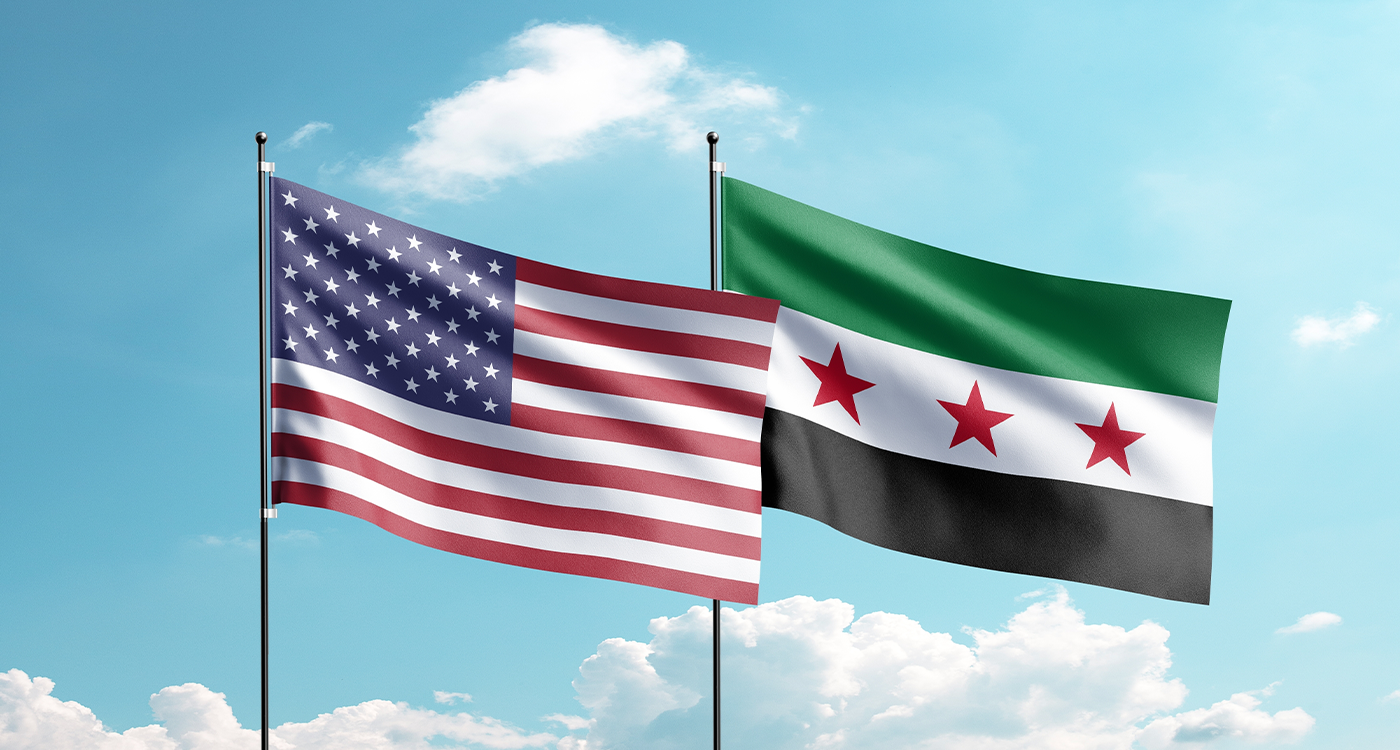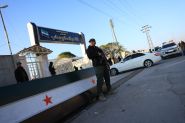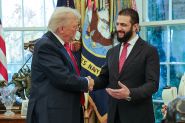- Home
- Middle East
- US Roadmap for Lifting Sanctions on Syria Takes Center Stage

©shutterstock
As Syria stands at a pivotal crossroads, the urgent question of lifting US and international sanctions takes center stage. These sanctions have profoundly impacted the nation's economy and governance since the outbreak of the civil war. With the Syrian interim government, now led by President Ahmed al-Sharaa, striving to stabilize the country and gain international support, the path forward is marked by intricate diplomatic negotiations, domestic reforms and the expectations of both the international community and the United States.
Sharaa has been vocal in his assertion that foreign assistance is crucial for maintaining a viable government structure. He contends that Syria's stability is not just essential for the nation itself but key for the broader Middle East, underscoring the implications of Syria's future for regional dynamics.
This week marked an encouraging sign of support from the region. Notably, Saudi Arabia and Qatar have cooperated to clear Syria's outstanding debt to the World Bank, amounting to $15 million, which the Syrian Central Bank Governor, Abdul Qader Hosri, has touted as a significant step toward reconstruction and normalization efforts. This development may enhance Syria's prospects of rejoining the international financial system, a critical component of its economic revival.
Hosri announced this milestone while attending the Spring Meetings of the International Monetary Fund (IMF) and World Bank in Washington, DC, where Syria participated for the first time in over two decades. This participation could signal a shift in international attitudes towards the war-torn country, though caution is still warranted.
US Sanctions Dilemma
Despite these promising signs, the road to recovery remains loaded with challenges, particularly concerning US sanctions. The United States has not yet formally recognized the new Syrian government and continues to impose stringent restrictions. Dorothy Shea, the US deputy ambassador to the UN, outlined the conditions under which easing of sanctions could be considered. "The new government must renounce terrorism, adopt non-aggression policies and assist in addressing humanitarian issues to warrant any changes to the current sanctions." This clear delineation of US demands presents a rigorous roadmap that the Syrian leadership must navigate with precision.
Following a recent visit to Damascus, US Congressman Cory Mills conveyed a sense of "cautious optimism" about Syria's potential trajectory. However, he maintained that the lifting of sanctions is contingent upon the fulfillment of critical conditions, including the dismantling of remaining chemical weapons and a commitment to collaborative efforts in counterterrorism. These strict requirements pose significant barriers and could derail diplomatic progress and prolong the sanctions.
The Path to Recovery
Moreover, the complexities of Syria's post-conflict landscape further complicate the situation, preventing the repatriation of millions of refugees and internally displaced persons. Reports suggest that many Syrians are reluctant to return until a robust governmental structure is firmly established, assuring safety, security and a stable environment conducive to rebuilding their lives. The potential withdrawal of US aid could exacerbate ongoing humanitarian crises, emphasizing the complicated relationship between international support and local governance.
For the interim government to legitimize its authority, successfully managing the returning population will be crucial for long-term recovery. The United Nations' "Whole of Syria" framework advocates for a comprehensive approach to humanitarian assistance, facilitating necessary cross-border aid from hubs in Jordan and Turkey. Ensuring continued access to these critical hubs is essential.
UK Eases Sanctions
In a noteworthy development, the UK has lifted asset freezes on several Syrian government entities, including the defense and interior ministries, as part of a strategy to ease sanctions and enable investment to rebuild Syria's economy.
The UK Foreign Office clarified that while these sanction adjustments aim to foster economic revitalization, restrictions would remain in place for members of the former Assad regime and those engaged in the illicit drug trade, particularly Captagon. This nuanced approach reflects a growing recognition of the need for change while addressing ongoing concerns regarding past leadership and current realities.
As the situation evolves, the international community will need to carefully balance its response to Syria's complex realities with the pressing need for humanitarian support and economic recovery. The lifting of sanctions, contingent upon meeting US demands, will be essential in shaping Syria's future.
Read more




Comments